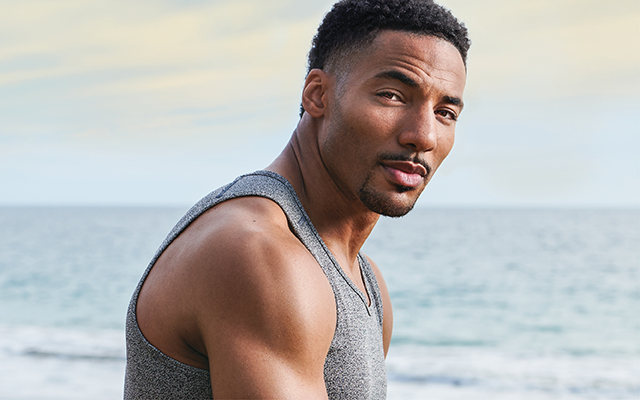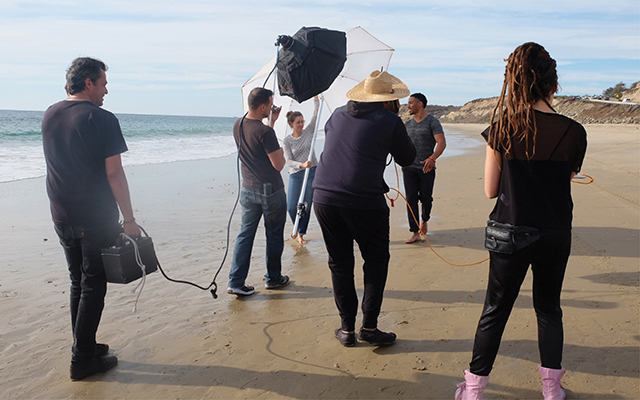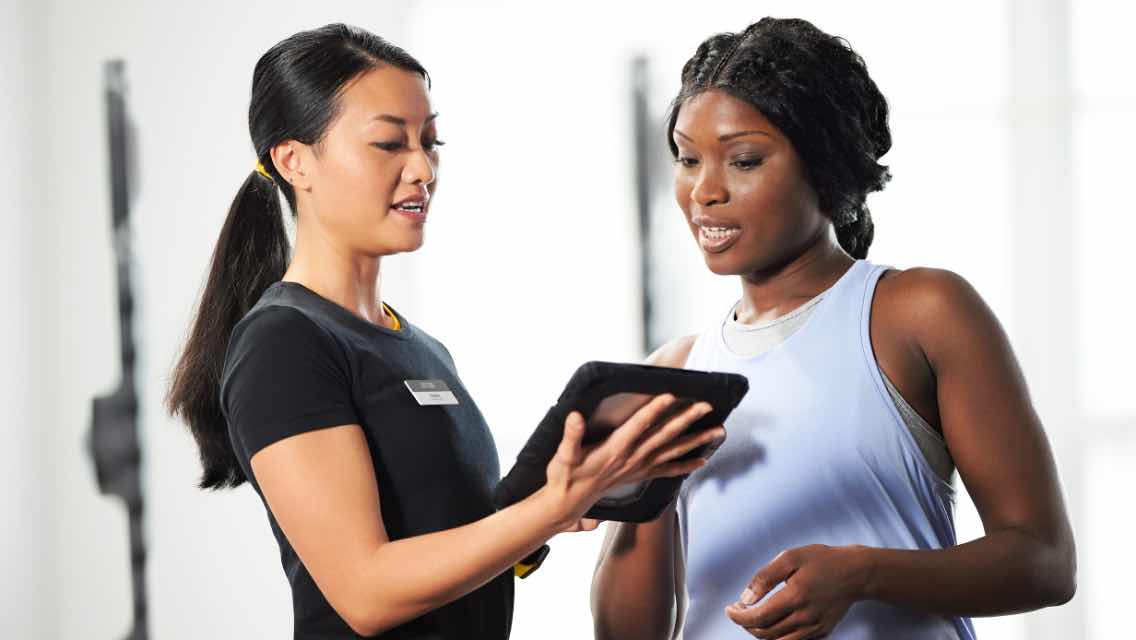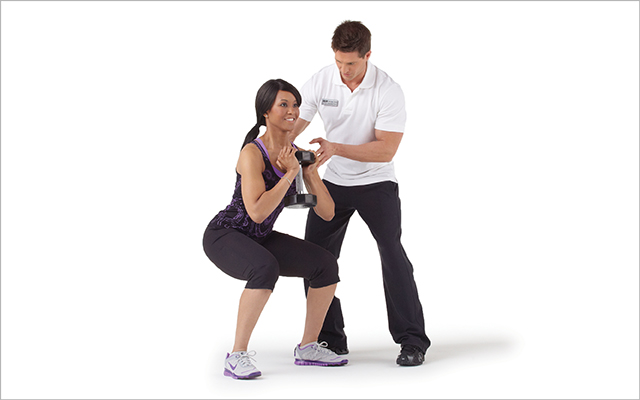A solid work ethic has always been one of David Freeman’s strongest attributes. As a kid, he started his mornings at 5 a.m., pulling tires and running hills with his dad and older sister at Fort Bragg in Fayetteville, N.C. “Someone may be smarter or faster than me,” says Freeman, 34, “but by the end of the day, I’m always going to outwork them, because that’s what my foundation is.”
Those early-morning drills helped him excel in football and track in high school and earn a scholarship to Virginia’s University of Richmond. Freeman studied criminal justice, but his sights were set on making it to the National Football League. Though his college team often struggled, the losses taught Freeman how to deal with adversity. “You face it head-on and work through it,” he says.
During his senior year, Freeman was named one of the team’s four captains. Each played a different role: One was a mediator, one a straight shooter, one led by example, and Freeman was known for his ability to bring out the most in his teammates.
“I wasn’t just a motivator, but a maximizer,” he explains. “I could tap into people to help them find whatever it was they needed to turn into the best version of themselves.”
After graduation, Freeman played pro football in Denmark and France, where he was forced out of his comfort zone. “I learned more about myself during that time than I probably had in my whole life,” he admits. “I was isolated from technology, family, and friends, and I started spending more time outside noticing the trees and leaves. I was present for once.”
Language barriers made communication a challenge, but led to a turning point. “I saw that movement was a universal language,” he explains. When teammates asked him how they could get stronger, Freeman didn’t need to use words. Instead, he showed them how to improve through weightlifting and speed drills, which translated into wins for the team.
“That was my first clue that I could use the things I’d done my whole life to inspire and motivate people,” he says. “It was also the beginning of me seeing that my purpose wasn’t about playing football, but helping people.”
In 2007 Freeman left France for a shot to play in an NFL developmental league, but it folded just before training camp. “It was tough, but it made me sit down and ask myself what I was supposed to be doing with my life.”
It also led to something Freeman had never done before: applying and interviewing for a job at a gym in Raleigh, N.C. “I’d played sports my whole life. The interview process was always a tryout.”
He didn’t get the job, but true to his tenacious nature, Freeman drove down the street to a different gym run by the same company and interviewed again. “I was already in my interview clothes,” he recalls. “Not getting that job made me even more determined — I had never not been chosen to do what I wanted to do.”
He landed the job and began learning the ins and outs of personal training. “I wanted to know the best of the best,” he says. “Not from a financial standpoint, but who changed the most lives.”
Serving others became the most important part of Freeman’s job. His efforts paid off, and he was named Personal Trainer of the Year three times at his gym. Still, when Life Time purchased the company he worked for in 2011, he viewed the change as an opportunity for further growth.
“I saw everybody beelining to the group fitness studio,” he says. There, he found everything he loved: “movement, music, and excited people.”
It was another turning point. He worked his way up through the group fitness ranks before Life Time management challenged him to run a pilot concept at an Arizona club. That program, TEAM Alpha, is now the company’s fastest-growing program, and Freeman is its national manager.
“I’m excited about it because it goes all the way back to that 8-year-old getting up at 5 in the morning, running hills with my family,” he says.
Using lessons from his personal success, he combines determination and positivity with the support and energy that come from being part of a team to bring out the best in his clients.
“People spend an hour with me free of technology and day-to-day tasks,” he explains. “We’re not just working out — we’re having real conversations about their lives. This is important because, if someone wants to create change in their body, they need to be mentally and emotionally strong, too.”
Freeman credits his parents with instilling the work ethic that’s helped him overcome adversity and his older sister for “always being the rabbit out in front of me encouraging me to run faster.”
But it was his wife, Mechelle, who helped him find his purpose. “She pushed me to become the best version of myself after I thought football was over,” Freeman explains. “I didn’t know what I should be doing next, but she’s the one who told me to interview for that first personal-training job.”
She inspired Freeman in a different way, too. In 2006 the former track star at the University of South Carolina quit her job at a New York City ad agency to train for the Olympics. In 2008 she made Team USA.
“The experience of witnessing that grind — the training, the one-hour trips to get massages, her waking up in the night with cramps, and working her way through the adversity to meet her dream — still motivates me today. It serves as a reminder that if you put your mind to something, you can do it.”




This Post Has 0 Comments